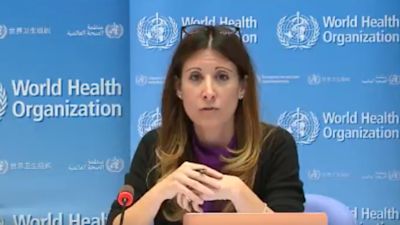Coronavirus transmission from people without symptoms 'very rare', says WHO expert

Transmission of coronavirus from individuals showing no symptoms is “very rare”, the World Health Organization’s (WHO) Covid-19 technical lead has said.
Dr Maria Van Kerkhove told a press conference WHO officials have been studying data collected from various countries tracking infected individuals and their recent contacts.
While a report recently published by WHO urges caution, Dr Van Kerkhove said “it still appears to be rare that an asymptomatic individual actually transmits onward”.
“We have a number of reports from countries who are doing very detailed contact tracing,” she said.
“They’re following asymptomatic cases, they’re following contacts, and they’re not finding secondary transmission - it’s very rare.”
A WHO report outlining advice on the use of masks claims comprehensive studies on transmission from those without symptoms are difficult to conduct.But available evidence “suggests that asymptomatically-infected individuals are much less likely to transmit the virus than those who develop symptoms”.
The report also warns this data comes from a limited number of studies with small samples that could be subject to “recall bias”.
Fomite transmission – passing on and catching the virus through contact with surfaces – cannot be ruled out, the report adds.
Public Health England’s guidance on transmission and prevention, published on May 19, states: “Assessment of the clinical and epidemiological characteristics of Covid-19 cases suggests that, similar to SARS, most patients will not be infectious until the onset of symptoms.
“In most cases, individuals are usually considered infectious while they have symptoms; how infectious individuals are depends on the severity of their symptoms and stage of their illness.”
The guidance adds there have been case reports “that suggest possible infectivity prior to the onset of symptoms”.
“Further study is required to determine the frequency, importance and impact of asymptomatic and pre-symptomatic infection, in terms of transmission risks,” the guidance adds.
“From international data, the balance of evidence is that most people will have sufficiently reduced infectivity seven days after the onset of symptoms.”
Dr Van Kerkhove said the key to containing the virus is focusing on individuals who show symptoms.
“What we really want to be focused on is following the symptomatic cases,” she said.
“If we actually follow all of the symptomatic cases, isolated those cases, follow the contacts and quarantine those contacts, we would drastically reduce… it would be a drastic reduction in transmission.”
Coronavirus: Everything you need to know
Check the number of cases in your area with our interactive map
Listen and subscribe to our podcast
All the coronavirus information you need in one place - from health and work to what you can do to stop the spread of the virus